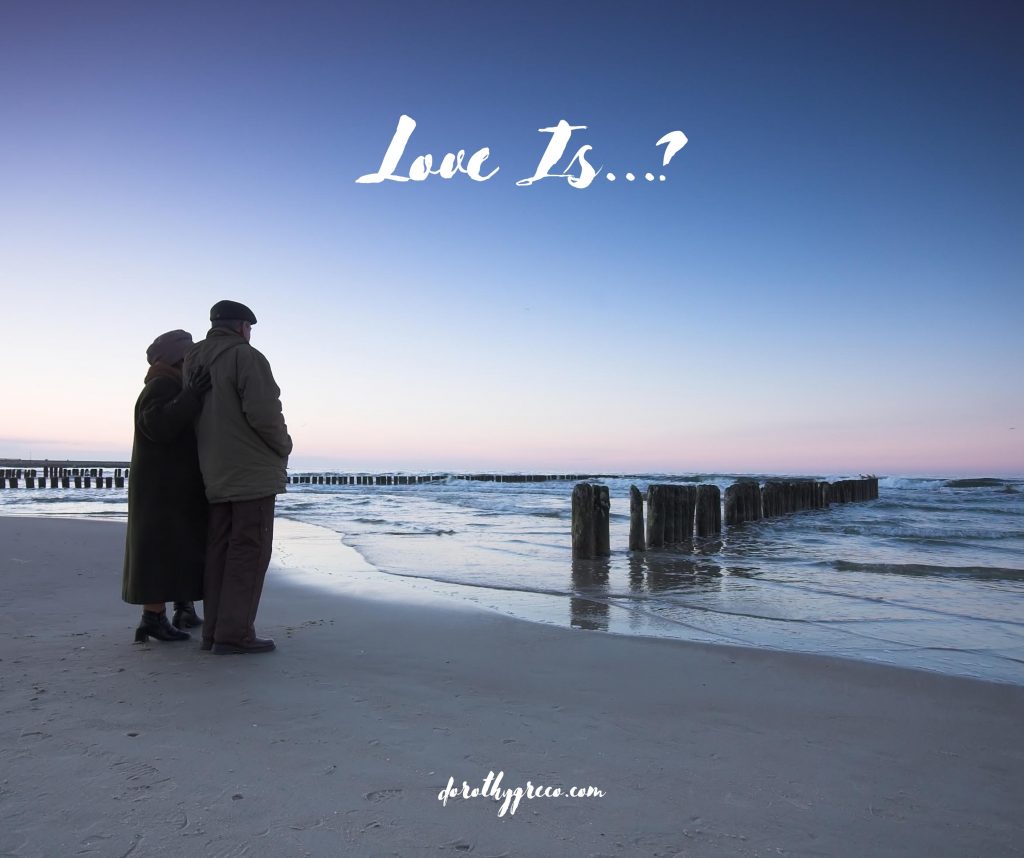“Love is an earthquake meant to relocate the center of our universe.” So writes Mike Mason in his brilliant book, The Mystery of Marriage. Each time this destabilizing, tectonic shifting pitched me off balance during my first decade of marriage, I assumed I was a failure at this til death do us part thing.
Let me digress. Despite our best efforts to heal our historic family-of-origin wounds pre-marriage, we crossed the threshold with baggage. As in seriously overweight baggage. I remember reviewing the results of a compatibility test during our pre-marital counseling, and discovering that we were off the charts—in opposite directions on several key personality traits. Growing up, I trained myself to be invisible. To disregard my needs and to prove my worth through excellent performance. He learned that if he wanted even a shred of connection, he had to dominate conversations and overpower his audience. Speed bump number one.
At some point in the early years of our marriage, I remember fantasizing about leaving. Not for anyone else. But because I hated feeling so incompetent. I wanted to love him well. I wanted to extend God’s grace and mercy on a daily basis. But the best I could do was a C+, every third day.
Fear held me captive. Fear of losing. Fear of giving all that I had and then simply collapsing in on myself. Fear of my offerings not being received or reciprocated. Fear of conflict if I spoke up. Our arguments back then largely centered on hurt feelings due to my unmet expectations. Ironically, I was rarely able to articulate those longings or needs until after I knew he had not met them. As you might imagine, this was profoundly unhelpful.
We hit a wall around year ten. The exact reasons for this collision seem inconsequential now. We fought against each other and we fought for each other. We cried. We asked for help. Grace was extended piecemeal, begrudgingly. The heat of this crucible felt excruciating, scorching, and at times, unbearable.
But then, mysteriously, sufficient dross rose to the top and something new emerged. I took metaphorical voice lessons so that I could begin revealing my needs and feelings in real time. He began to listen more attentively. And as the fear subsided, I stopped chaffing against the “one-downsmanship” (Mason again) which marriage requires. This union is perhaps less about getting what we want and more about laying down our lives. John the Baptist said about Jesus, “He must increase but I must decrease.” When a relationship is built upon this counter-cultural philosophy—mutual surrender and mutual sacrifice—we come to understand that victory comes through surrender.
Such relationships are not for the faint of heart. Mason refers to marriage as “an unrelenting guerrilla war against selfishness.” He continues, “Love convinces a couple that they are the greatest romance that has ever been, that no two people have ever loved as they do, and that they will sacrifice absolutely anything in order to be together. And then marriage asks them to prove it.”
In my experience, we are only able to prove it when we admit our limitations and accept the resources which God and others offers. I wish it was not so—I would much prefer to claim credit for any love I offer my husband. But as I look back over our 22 year marriage, I see that we are still together because we have both willingly chosen to be transformed into the image of Jesus and because we have willingly—and repeatedly—chosen to die so that the other may live. You will not find such sentiments on any ecard. But this, is true love.

We clearly still have a long way ahead of us, tanks for sharing!!!
‘the unrelenting guerrilla war against selfishness’-boy is that apt. Lovely, insightful article-thank you for sharing such a personal story..